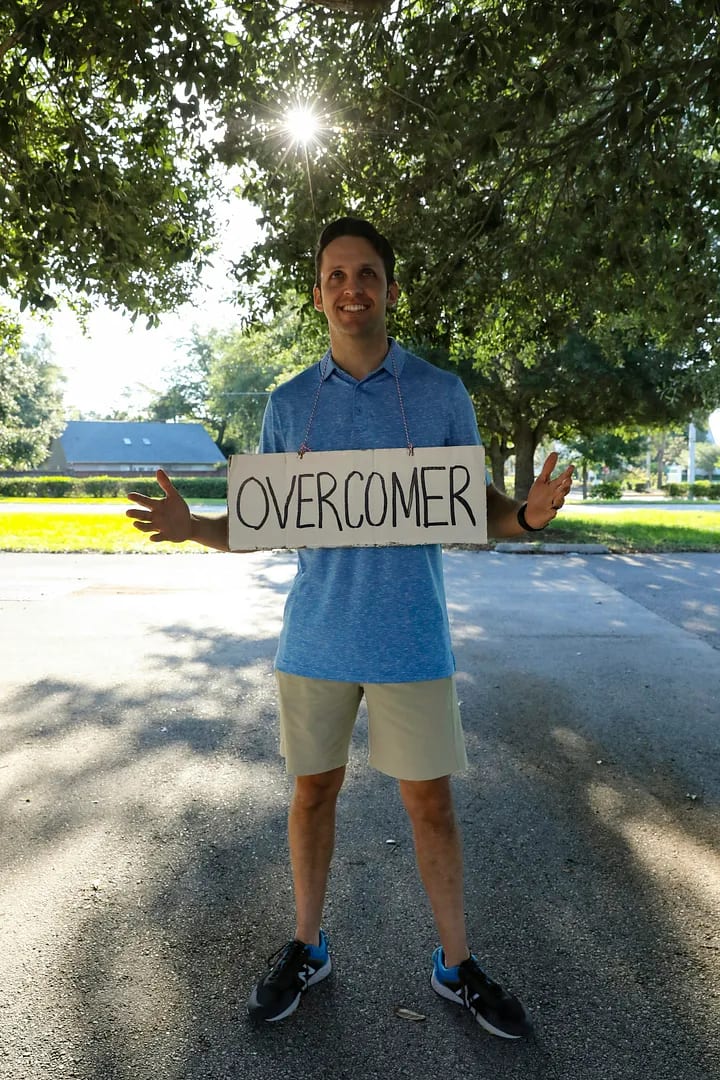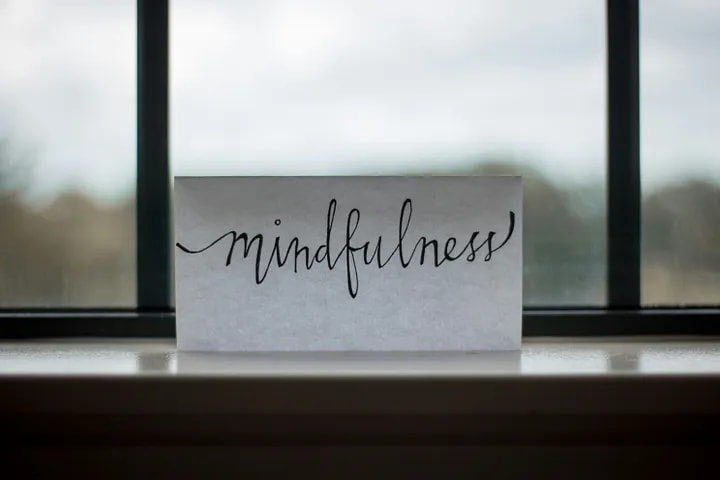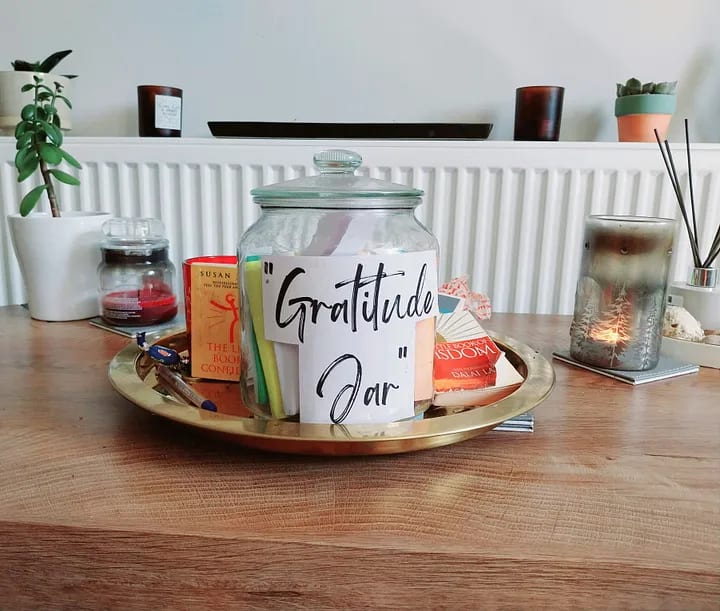Embracing Gratitude
Overcoming Common Challenges

I recently received a query in response to my previous article on the Power of Gratitude:
What are some common challenges people face when trying to cultivate gratitude, and how can they overcome these obstacles?
The answer to this question in a brief response would be a dissrvice to the question. The intent behind the question doesn’t deserve a superficial response, like “Look on the bright side,” which may very well be the case, but what most people are looking for in such scenarios is not, WHAT to do? But HOW to do it?
The Essence of Gratitude
Gratitude transcends a mere “Thank you.” It represents a sincere recognition of the good in our lives, both big and small. Research authoritatively shows that practicing gratitude can lead to numerous benefits, including improved mental health, stronger relationships, and greater resilience. The fact that gratitude weilds such benefits is hardly ever in question, but as the question posits, maintaining a consistent practice of gratitude is often a herculean task. So, let’s talk about that.
1. Overcoming Negativity Bias
This phenomenon needs no introduction. Simply put, negativity bia is our inherent tendency to focus on negative experiences more than positive ones, which can hinder a grateful mindset. Here’s how to deal with it:
Acknowledge Your Emotions: Allow yourself to feel and recognize your emotions. Take a moment to sit quietly and acknowledge your feelings without judgment. Write them down if that helps. Accepting that you’re upset, anxious, or overwhelmed is the first step towards processing these emotions.
Practice Mindfulness: Ground yourself in the present moment. Engage in mindfulness exercises such as deep breathing, meditation, or a simple body scan. Focus on your breath or the sensations in your body to bring your attention back to the present. This practice can help reduce anxiety and create a mental space to identify positives.
Identify Small Positives: Look for minor positives in your situation. Ask yourself, “What’s one small thing that went right today?” or “Is there something I learned from this experience?” It might be a kind gesture from a friend, a moment of laughter, or a lesson learned. Write these down in a journal to remind yourself of these positives.
Shift Perspective: Reframe your perspective on the situation. Consider the broader context of your stressor. For example, if you’re facing a job loss, think about how this might be an opportunity to explore a new career path or develop new skills. Reframing doesn’t minimize the challenge but helps you see other facets of the experience.
Seek Support: Reach out for emotional or practical support. Talk to a friend, a family member, or, if needed, a mental health professional about your struggles. Sharing your burden can provide relief and sometimes others can help you see the positives you might have missed. Support groups can also offer perspective and encouragement from those in similar situations.
Set Small, Achievable Goals: Focus on manageable tasks and goals. Break down overwhelming tasks into smaller, more achievable steps. Celebrate small victories along the way. For instance, if dealing with a health issue, aim for simple, daily health improvements like a short walk or a healthy meal.
Reflect on Past Resilience: Recall previous instances where you overcame adversity. Reflect on past challenges and how you navigated them. Remind yourself of your resilience and strength. Consider journaling about these past experiences and the strengths you used to overcome them.
Gratitude Practice: Cultivate a habit of gratitude. Each day, write down three things you are grateful for, no matter how small. This practice can shift your focus from what’s going wrong to what’s going right. Over time, this habit can rewire your brain to notice positive aspects more readily.
Engage in Acts of Kindness: Perform small acts of kindness. Helping others can provide a sense of purpose and lift your spirits. Volunteer, help a neighbor, or simply offer a kind word to someone. These actions not only benefit others but also enhance your own well-being. In my most difficult times, I used to volunteer on “7 Cups | Free Online Therapist & Counseling.” I still do.
Focus on What You Can Control: Direct your energy towards aspects you can influence. Identify the elements of your situation that you can change and take action on them. Let go of what is beyond your control. This focus can reduce feelings of helplessness and increase your sense of agency.

2. Tackling Comparison with Others
Comparing ourselves to others often leads to feelings of inadequacy and diminishes our sense of gratitude. Social media, in particular, highlights the best moments of others’ lives, skewing our perception. Here’s how to deal with it:
Acknowledge Your Triggers: Identify what triggers your comparison habits. Pay attention to the moments when you feel the urge to compare yourself to others. Note the circumstances, such as specific social media platforms or certain interactions. Recognizing your triggers can help you manage them better.
Limit Social Media Use: Reduce time spent on social media. Set specific times for social media use or take regular breaks from it. Unfollow accounts that make you feel inadequate and follow those that inspire and uplift you. Use social media mindfully and avoid mindless scrolling. I remember taking a complete break from social media to refocus myself in the past, it was a transformative time for my mental well-being.
Practice Self-Compassion: Treat yourself with kindness and understanding. Whenever you catch yourself in the act of self-criticism, pause and reframe your thoughts. Speak to yourself as you would to a close friend. Remind yourself of your achievements and unique qualities.
Celebrate Your Accomplishments: Focus on your own progress and achievements. Keep a journal where you record your accomplishments, no matter how small. Reflect on your growth and the steps you’ve taken toward your goals. Celebrating your progress can boost your self-esteem and reduce the urge to compare.
Gratitude Practice: Foster gratitude for what you have. Each day, write down things you are grateful for. This practice can shift your focus from what others have to what you appreciate in your own life. Over time, this can help reduce feelings of inadequacy and increase contentment.
Seek Authentic Connections: Step: Build relationships based on mutual support. Surround yourself with people who encourage and support you. Engage in meaningful conversations and activities that foster genuine connections. Authentic relationships can provide a buffer against the negative effects of comparison.
Focus on Personal Growth: Invest in your personal development. Set goals that align with your values and passions. Pursue activities that contribute to your growth and well-being. Focusing on your personal journey can help you stay grounded and less affected by external comparisons.

3. Managing High Expectations and Entitlement
High expectations and a sense of entitlement can hinder gratitude. When we expect certain outcomes or believe we deserve specific things, we may overlook what we already have. Here’s how to manage high expectations and entitlement:
Reflect on Your Expectations: Examine your current expectations and their origins. Spend time journaling or meditating on the expectations you hold. Ask yourself why you have these expectations and whether they are realistic. Understanding the source can help you manage them better.
Set Realistic Goals: Adjust your expectations to be more attainable. Break down large goals into smaller, achievable steps. Celebrate each milestone, no matter how small. Setting realistic goals can help you appreciate the progress you make along the way.
Practice Humility: Cultivate a sense of humility and gratitude. Remind yourself that life’s blessings are gifts, not guarantees. Reflect on the efforts and contributions of others in your achievements. This practice can foster a sense of humility and reduce feelings of entitlement.
Focus on the Present Moment: Embrace the present rather than fixating on future outcomes. Engage in mindfulness exercises to ground yourself in the present. Appreciate the here and now, and practice savoring the small joys in your daily life. This shift in focus can enhance your sense of gratitude. Consider reading, it helps in keeping us grounded in the present moment.
Gratitude Practice: As with everything else, develop a habit of daily gratitude initiates a ‘positive feedback loop’. Write down things you are grateful for each day. This practice can help you shift your focus from unmet expectations to the blessings in your life. Over time, this can reduce feelings of entitlement and increase appreciation.
Volunteer and Give Back: Engage in acts of service and generosity. Volunteer your time and resources to help others. Giving back can provide perspective and remind you of the value of what you have. It can also foster a deeper sense of gratitude and fulfillment.
Can you see a pattern now in all of these? Pretty much the same thing, no? Let’s move further along…
4. Navigating Life Stressors and Adversity
Here’s one of the most annoying ones! Life stressors, such as financial difficulties, health issues, or relationship problems, can overshadow feelings of gratitude, making it hard to see the positives in life. Who can practice gratitude when you can’t see past the adversity, right? Turns out, that’s not really true. Here’s how: Just keep thinking about this problem in the same context and scroll up to negativity bias!
5. Overcoming Perfectionism
Perfectionism can make it difficult to appreciate what you have, as the focus is often on what is lacking or what could be better. This mindset can be a significant barrier to gratitude. Should know this by now, here’s how:
Acknowledge Perfectionistic Tendencies
Set Realistic Goals
Embrace Imperfections
Focus on the Present Moment
Gratitude Practice
Celebrate Progress, Not Perfection
Any other problems you can think of, let me know, and if you can’t use the above formula to create your own solutions, reach out and let’s see if we can work something out!

Building Awareness and Habit
Now in many of these, I mentioned “Practicing Gratitude,” as part of the solution for cultivating gratitude. It seems redundant. However, gratitude is often not an ingrained habit in us, unfortunately, we simply aren’t raised with it! So many people simply forget to practice it. Developing awareness and consistency can help make gratitude a regular part of your life and make it a consistent part of your ‘positive feedback loop’.
Set Reminders: Use reminders to prompt gratitude practice. Use reminders on your phone or sticky notes in your living space to prompt you to practice gratitude throughout the day. Incorporate gratitude into your daily routine, such as during meals, before bed, or after waking up. Consistency will help make it a habit.
Create a Gratitude Journal: Develop a habit of writing down what you’re grateful for. Dedicate a few minutes each day to jot down things you are grateful for in a journal. This practice can help you focus on the positive aspects of your life and reinforce a habit of gratitude.
Share Gratitude with Others: Express gratitude to the people around you. Make it a habit to thank people who make a positive impact on your life, whether it’s family, friends, or colleagues. Sharing gratitude can strengthen your relationships and create a positive environment.
Reflect on Your Day: End your day with a gratitude reflection. Before going to bed, take a moment to reflect on your day and identify three things you are grateful for. This reflection can help you end your day on a positive note and reinforce your gratitude habit.
Mindful Gratitude Practices: Combine mindfulness with gratitude. During your mindfulness exercises, such as meditation or yoga, focus on feelings of gratitude. Mindfully acknowledging the things, you are grateful for can deepen your sense of appreciation.
Gratitude Jar: Create a visual reminder of gratitude. Keep a jar where you can drop notes about things you’re grateful for. Over time, the jar will fill up, serving as a visual reminder of the positives in your life. On difficult days, you can read through these notes for a boost.
Embracing a Grateful Life
Cultivating gratitude is a powerful practice that can transform your outlook on life, but it comes with its challenges. Recognizing these obstacles and implementing strategies to overcome them can develop a more grateful mindset. Remember, gratitude is a journey, not a destination. With consistent practice and perseverance, you can train your brain to focus on the positive and enhance your overall quality of life. As Meister Eckhart once said,
“If the only prayer you ever say in your entire life is thank you, it will be enough.”
Embrace gratitude, and let it guide you towards a more fulfilling and joyful existence. Exploring the common challenges to gratitude and implementing these strategies can unlock the core benefits of this practice. Whether it’s through mindfulness, setting realistic expectations, finding silver linings in adversity, or building a habit of gratitude, you can enhance your life and the lives of those around you. Embrace the journey and let gratitude transform your life, one thankful moment at a time.

My journey with gratitude has been deeply transformative. Struggling with depression led me to seek answers and introduced me to the power of gratitude. Focusing on the positive aspects of my life improved my overall mood. Everyday annoyances, like feeling angry in traffic or getting frustrated with minor inconveniences, began to fade. The practice of gratitude helped me see through the illusion of destination addiction; the constant chase for the next achievement and allowed me to appreciate the present moment.
Through gratitude, I learned to savor small joys and recognize the abundance in my life. This shift not only improved my mental health but also deepened my relationships and enhanced my overall quality of life. I hope this does the same for you.
About the Creator
Enjoyed the story? Support the Creator.
Subscribe for free to receive all their stories in your feed. You could also pledge your support or give them a one-off tip, letting them know you appreciate their work.





Comments
There are no comments for this story
Be the first to respond and start the conversation.